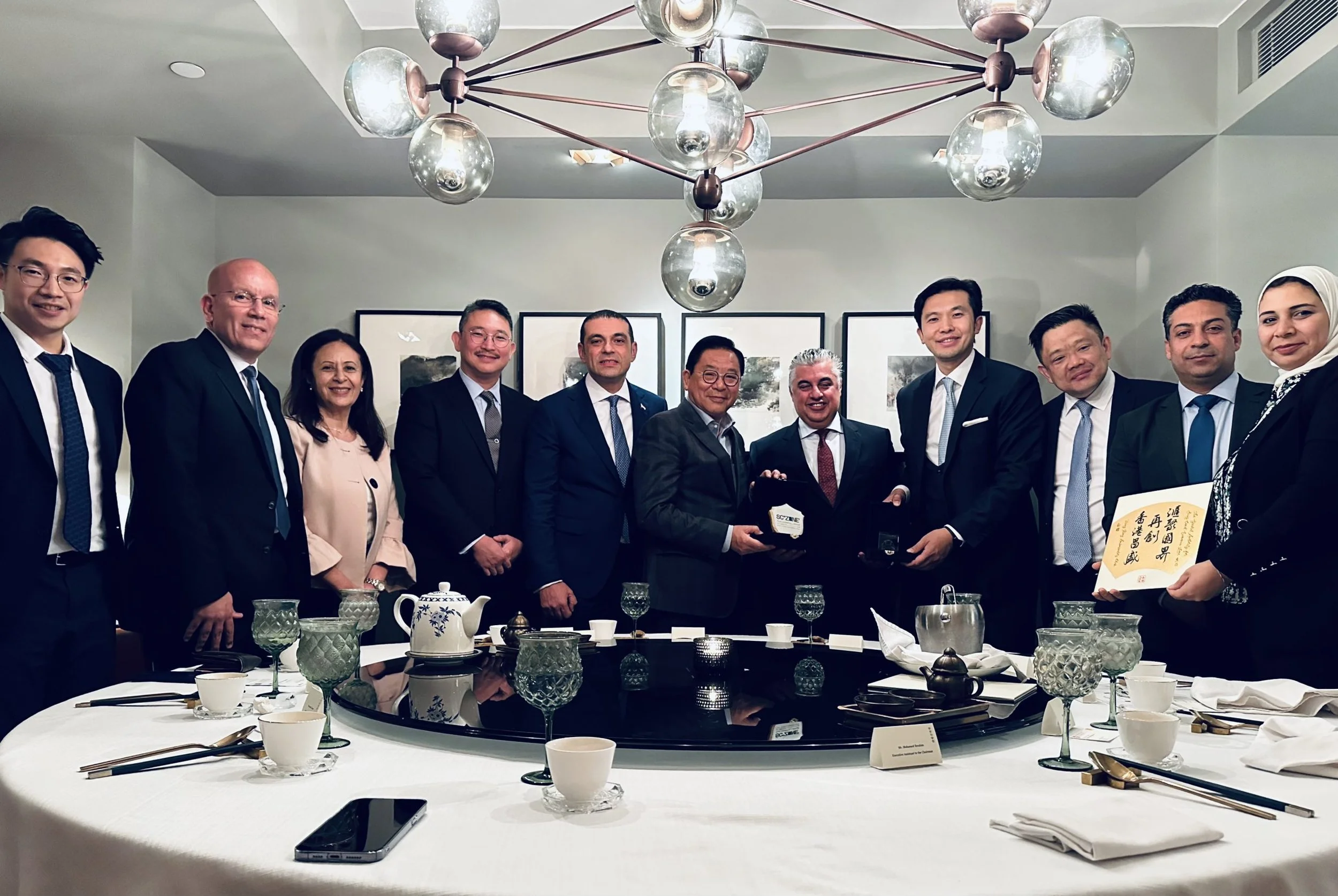Hong Kong Ambassadors Club (HKAC): Navigating the Tides of Egypt’s Economic Challenges and Opportunities
The Hong Kong Ambassadors Club (HKAC) recently had the honour of hosting a dinner meeting with the Suez Canal Economic Zone (SCZone) authority, where a series of crucial topics were discussed concerning Egypt’s economic outlook, its ongoing challenges and potential solutions.
Context: Ukraine War and Egypt’s Economic Dependence
Against the backdrop of the Ukraine War and Egypt’s long standing dependence on fuel and food imports, the country finds itself navigating a complex and often tumultuous economic landscape. The ongoing geopolitical conflict has exposed a significant vulnerability in Egypt’s economy, threatening to disrupt its domestic, economic, and foreign policies. As described in a detailed analysis by the International Crisis Group, the country’s fragility stems from its heavy reliance on external resources for food and fuel.
Egypt’s Two Pillars: The Suez Canal and the “Golden Triangle”
Map of the “Golden Triangle” in Egypt (Photo credit: Springer Link)
Egypt’s economy, as per Atalayar’s report, is deeply entrenched in two critical sectors: the Suez Canal and the “Golden Triangle.” The Suez Canal, renowned as an international maritime trade route, has traditionally been a vital contributor to Egypt’s economy. However, the Canal’s reliability was questioned following the obstruction incident in 2021, reminding global stakeholders of the need for alternative strategies and diversified trade routes.
On the other hand, the “Golden Triangle” is an economic region encompassing the cities of Qena, Quseir, and Safaga, rich in mineral resources and a crucial hub for mining and manufacturing industries. This area holds substantial potential for sustainable economic development but it still requires significant investment and strategic planning.
Future Reforms: Shifting Capital and Sustaining the Suez Canal
Ports of SCZone (Photo credit: SCZone Authority)
The Egyptian authorities have planned several reforms to tackle these challenges and pave the way for a resilient economy. These include shifting the administrative capital to a new location, a move designed to stimulate economic activity, and initiatives geared towards developmenting and sustainable utilisation of the Suez Canal.
Additionally, in an innovative step towards green energy, the SCZone has signed a Memorandum of Understanding (MoU) with H2 Industries to establish Egypt’s first waste-to-hydrogen plant in East Port Said. With an estimated cost of USD 4 billion, this plant represents a significant investment in renewable energy. It signifies the government’s commitment to establishing the SCZone as a regional green energy hub, thereby capitalising on the momentum ahead of COP27.
One Belt One Road: The Sino-Egypt Relationship and Hong Kong’s Role
The Belt and Road Initiative (BRI), proposed by China, offers another dimension to Egypt’s economic trajectory. As a part of this initiative, Egypt and China have been fostering a robust economic relationship, with Egypt being one of the first countries to sign a BRI cooperation document with China.
With its sophisticated financial infrastructure and a pool of multi-disciplinary professionals, Hong Kong can play a significant role in this Sino-Egypt relationship. Its industrial advantages, coupled with its advanced capital market and skillset, can provide essential support for Egypt’s economic development.
Through collaboration with the SCZone authority, Hong Kong can contribute to the process of economic reform in Egypt. Potential areas for cooperation could include technological transfer, infrastructure development, capacity building, and investment in renewable energy projects.
As an international financial hub, Hong Kong is uniquely positioned to connect capital from around the world to Egypt’s development projects, offering mutual benefits and fostering sustainable development.
The recent dinner meeting between the HKAC and the SCZone authority has been a valuable exchange of insights and perspectives. It has underlined the potential for collaboration between Hong Kong and Egypt in overcoming economic challenges and shaping a sustainable future.



